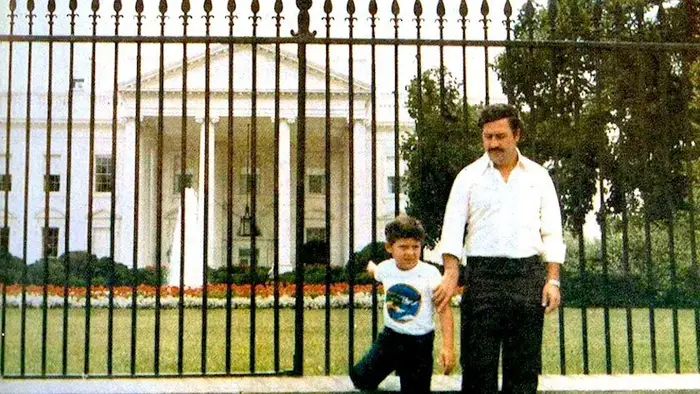Key Takeaways
- The Pablo Escobar White House connection remains a widely debated urban legend with no concrete evidence.
- Escobar’s political influence in Colombia contributed to his larger-than-life image.
- Media portrayals have blurred the lines between fact and fiction regarding Escobar’s exploits.
- Escobar’s drug empire impacted international relations, particularly U.S.-Colombian policies.
- The socioeconomic effects of Escobar’s activities were felt globally, shaping public perception and policy.
The legacy of Pablo Escobar, the infamous Medellín Cartel leader, continues to captivate both historians and the public alike. Among the many stories surrounding his life, one of the most intriguing is the alleged connection between Escobar and the White House. This article dives into the details of this urban legend, examining its origins, implications, and the larger context of Escobar’s influence on international politics.
Pablo Escobar White House Connection
The Origins of the Legend
The alleged visit of Pablo Escobar to the White House is a story that has been told and retold in various formats, from documentaries to fictionalized accounts. The legend suggests that Escobar, in a bold display of his reach and power, managed to visit the White House during the height of his criminal career. While no definitive evidence supports this claim, the story persists due to its sensational nature and the aura of mystery surrounding Escobar.
Escobar’s Influence on Politics
Escobar’s influence was not limited to his drug empire; he also had significant political clout in Colombia. He was known for his substantial financial contributions to various political figures and even served as an alternate member of the Colombian Congress. These political connections fueled the narrative that Escobar could extend his reach to influential figures in the United States, possibly reaching as far as the White House.
The Role of Media and Pop Culture
The media has played a crucial role in perpetuating the Pablo Escobar White House legend. From TV shows like “Narcos” to numerous biographies, Escobar’s life has been dramatized and mythologized. These portrayals often blur the lines between fact and fiction, leading to widespread speculation about Escobar’s true capabilities and audacity.
Escobar’s Historical Impact
The Drug Trade and International Relations
Escobar’s involvement in the drug trade had far-reaching effects on international relations, particularly between the United States and Colombia. His operations led to increased efforts by the U.S. government to combat drug trafficking, resulting in significant shifts in foreign policy and law enforcement strategies.
Economic and Social Consequences
The influx of cocaine during Escobar’s reign had profound economic and social consequences, both in Colombia and abroad. In Colombia, his wealth allowed him to build infrastructure and provide for the poor, earning him a Robin Hood-like reputation among some locals. Conversely, the U.S. faced a rise in drug addiction and crime, prompting severe crackdowns on drug-related activities.
Table: Timeline of Escobar’s Influence
| Year | Event | Impact |
| 1982 | Elected as alternate member of Congress | Increased political influence |
| 1989 | Forbes lists Escobar as the 7th richest man in the world | Highlights economic power |
| 1993 | Death of Escobar | End of an era in Colombian drug trade |
Read more: Counterpoint 1.2B US ChinaBradshaw FinancialTimes: A Deep Dive into the Economic Landscape
FAQs
While Escobar had extensive networks, there is no verified evidence of direct connections with the U.S. government or the White House.
The U.S. implemented various strategies, including military and law enforcement aid to Colombia, to dismantle Escobar’s operations.
Escobar’s death marked the decline of the Medellín Cartel, but it also led to the rise of other drug trafficking organizations, notably the Cali Cartel.
The legend persists due to its sensational appeal and the mystique surrounding Escobar’s life, fueled by media portrayals.
Escobar’s impact was dual-faceted; his wealth funded community projects yet also fueled violence and corruption.
Conclusion
The story of the Pablo Escobar White House connection captivates due to its blend of myth, mystery, and the undeniable influence Escobar wielded. While the tale may remain unverified, it underscores the extensive reach of Escobar’s influence during his reign over the Medellín Cartel. By exploring these narratives, we gain insight into the complexities of global drug trade dynamics and the societal impacts of Escobar’s legacy. Whether fact or fiction, the story continues to intrigue and provoke discussions on the intersections of power, crime, and politics.


